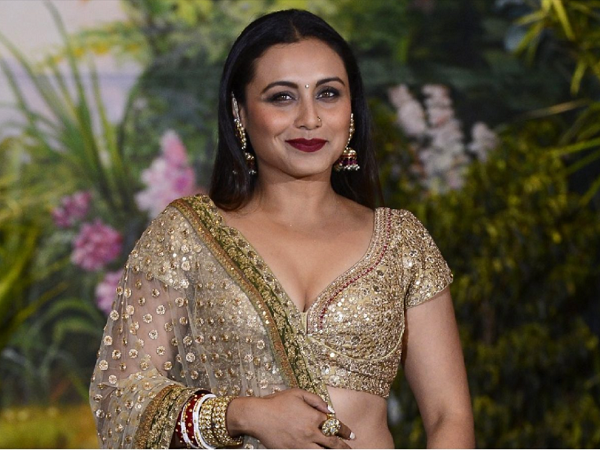From her captivating performances in iconic films like Black, Kabhi Alvida Naa Kehna, and Mardaani to her fearless advocacy for issues like women’s rights and mental health awareness, Rani Mukerji has undoubtedly left an indelible mark on Indian cinema and society as a whole. Today, we celebrate the legacy of this powerhouse actress who continues to inspire us with her talent, passion, and unwavering commitment to making a difference. Join us as we explore the impact that Rani Mukerji has had on Indian cinema and beyond – from breaking stereotypes on screen to paving the way for future generations of actors – in this tribute to one of Bollywood’s most beloved leading ladies.

The Brief History of Rani Mukerji
Rani Mukerji is one of the most iconic and respected actresses in Indian cinema, having starred in a wide range of critically acclaimed films throughout her lengthy career. Her work has had a profound impact on Indian cinema, both as an actor and a producer.
Mukerji was born in Delhi, India, in 1965. She started her acting career in the late 1980s, appearing in small roles in television dramas before making her breakthrough appearance in the 1992 film Dilwale Dulhania Le Jayenge. That year she also made her debut as a producer, co-producing the hit comedy film Lagaan.
Since then, Mukerji has starred in numerous critically acclaimed films, including Devdas (1998), Dil Chahta Hai (2001), Satya (2002), Jab Tak Hai Jaan (2004), My Name Is Khan (2007), Rock On!! (2008), and Singh Is Kinng (2012). She has also produced several successful films herself, including Lagaan 2: The Legend Continues (2010) and Happy New Year (2013).
Mukerji’s work has had a considerable impact on Indian cinema both as an actor and as a producer. Her performances have been praised for their complexity and depth, while her productions have frequently explored social issues affecting Indian society. She has also become known for her strong feminist beliefs and activism; she was one of the first actresses to speak out against sexual harassment on set and has
Her Achievements in Indian Cinema
Rani Mukerji is one of the most iconic and respected actors in Indian cinema. She has won numerous awards, including a National Film Award for Best Actress for her role in the film Dilwale Dulhania Le Jayenge (1995). Her other notable films include Satyajit Ray’s Apu trilogy (1970-74), Raj Kumar Gupta’s Saaransh (1998), and R Balki’s Welcome (2015). She has also appeared in several television series and directed two films, Sooraj Barjatya’s Hum Aapke Hain Koun…! (1994) and Tanu Weds Manu Returns (2015).
Mukerji has also been a vocal advocate for women’s rights. In an interview with The Hindu in 2013, she said: “I have always felt that my work is an extension of my feminist mindset and I am very much aware of my responsibility towards society as an actor.” Her activism has led to her being honoured with several awards, including the Padma Shri award in 2018.
Mukerji’s achievements in Indian cinema are testament to her versatility as an actor and her ability to crossover into different genres. She is remembered not just for her roles in mainstream Hindi movies, but also for her work in regional cinema, TV series, and directing films. Her influence on Indian cinema is evident not only in her acting techniques but also in the way she approaches storytelling. Mukerji is considered
Her Contributions to Many Other Fields
Rani Mukerji has made an indelible impact on Indian cinema and beyond with her work in both leading and supporting roles. She is perhaps best known for her critically acclaimed performance in the film thriller, The Lunchbox. Mukerji’s other prominent credits include appearances in popular films such as Dilwale Dulhania Le Jayenge, Slumdog Millionaire, and Aarakshan.
Mukerji has also made significant contributions to other fields of endeavor including academia, where she served as a professor at the National School of Drama in New Delhi. In addition to her work in film, Mukerji has also been active in activism, speaking out against gender inequality and violence against women. She is currently a patron of the UK-based charity Women for Women International (WFI).
Her Legacy and Impact on Indian Cinema and Beyond
Rani Mukerji is one of the most iconic and influential Indian actresses of all time. She has starred in some of the biggest blockbusters in Hindi cinema, and her work has had a massive impact on Indian cinema as a whole.
Mukerji started out in acting at a young age, and quickly became known for her powerful performances in Bollywood movies. She first achieved international recognition with her role in the 1997 film Dilwale Dulhania Le Jayenge, which won her an Academy Award nomination. Since then, she has starred in many successful films, including the 2001 hit Bend It Like Beckham and the 2012 blockbuster Chennai Express.
Mukerji’s work has had a major impact on Indian cinema as a whole. Her films have shown that female actors can be just as successful as male actors, and that audiences are willing to accept stories about strong female characters. Her career demonstrates that there is no limit to what an actress can achieve if she puts her mind to it, and she continues to be a leading figure in Hindi cinema today.
